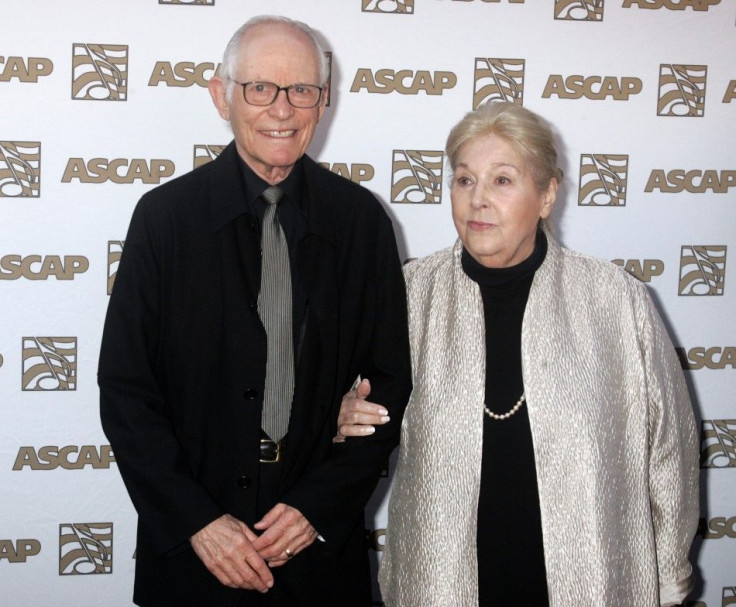A Minute With: Barbra Streisand's Songwriters

Husband and wife songwriting team Marilyn and Alan Bergman have won three Academy Awards and two Grammys, but their biggest reward in a long career just may be writing for Barbra Streisand.
They have penned the words of songs such as The Way We Were and You Don't Bring Me Flowers. While they have written for other singers ranging from Frank Sinatra to Sting, it is Streisand they hold dearest.
The Bergmans first saw her as a teenager in a Greenwich Village club. They immediately took to her and she to them.
Streisand recently released a new album, What Matters Most, as a tribute to the Bergmans and their music. It includes The Windmills of Your Mind and Streisand's version of Sinatra's Nice 'n' Easy. The Bergmans spoke with Reuters about the album and their long relationship with Streisand.
Q: You have won numerous awards and been feted many times. So, how special could this have been?
Marilyn: We almost fell off our chairs. Barbra is our muse. She has recorded over 50 songs of ours, which makes her role in our musical lives and personal lives a very special one.
Alan: And when she does our songs, she finds things that always surprise us. She deepens them. She gets all the nuances, everything, so it's thrilling.
Marilyn: Other people have sung 'Windmills of Your Mind,' but really, we think hers will be the definitive version.
Q: Why?
Marilyn: As Alan said, it's the nuances and the layers of meaning that perhaps we meant but didn't hear ourselves. They are all highlighted when she works, she really works at it.
Q: I'd think it was just talent. How does she work at it?
Marilyn: She strives for excellence. You can read that as being a perfectionist but not in the sense that has become pejorative. She wants to make something the best it can be. ... She's aware of the permanence when you write something or perform something, and she sees her responsibility as making something as good as it can be.
Alan: All the God-given gifts are there, but not everybody uses them as responsibly as she does.
Q: She has said you're almost like her parents and you've said she's like a daughter. So, was there a time when you said or had to say, Barbra, maybe this song isn't best for you?
Marilyn: No.
Q: Why?
Alan: Because her instincts about music and about herself are amazing, they're just terrific.
Q: You met her when she was 18, and one of you asked her if she knew how wonderful she was. What made her wonderful?
Alan: It was all there, everything. She started to sing, and Marilyn started to cry. ... It was all the things we were talking about earlier -- the way she does it, the instrument.
Marilyn: The originality was there -- the sound of her voice, the way she phrased songs, the clothes she wore, the original beauty, it's hers.
Q: And how has her voice changed from her youth to today?
Marilyn: I think it's deeper. I think it's richer. It's more knowing, it's wiser.
Alan: What Marilyn said is true. We can't dismiss all those things we talked about that go into the notes and interpretation. They're all richer. That's why the songs have added dimension, more than what we realized, because she makes little vignettes and stories out of every song. That is the actress in her and the dramatist in her.
Q: What's your favorite song on the album?
Allan: The most unique is 'Windmills.' And then the last song, I love the way she does 'What Matters Most.'
Marilyn: The most surprising is 'Nice 'n' Easy' -- the great record Frank Sinatra made and we made for him. His version was a proposition and Barbra's is a seduction.
© Copyright Thomson Reuters 2024. All rights reserved.





















